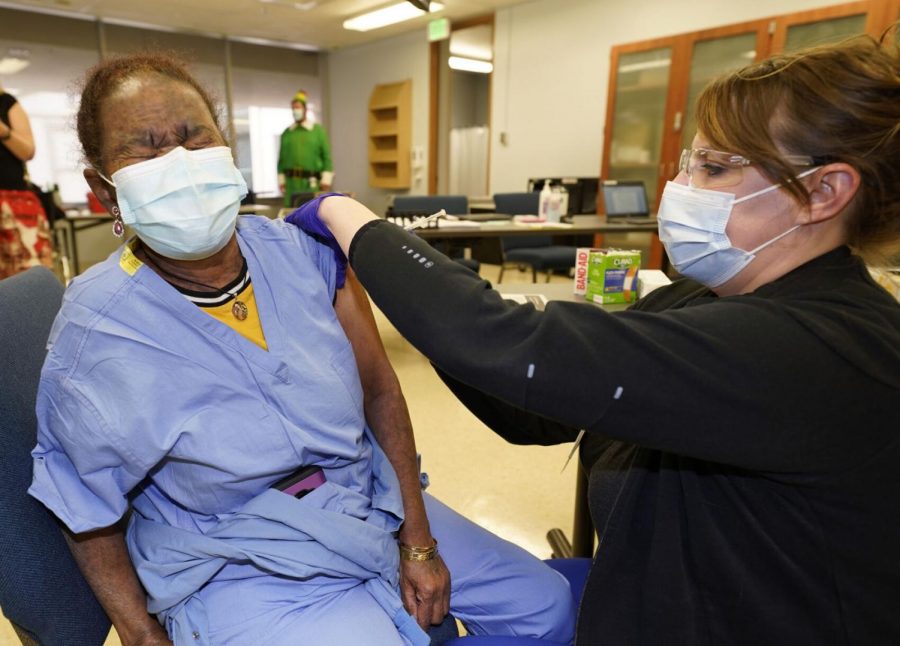Study: Vaccine passports may soon be obsolete
April 12, 2021
(The Center Square) – States around the country are discussing controversial, mandatory vaccine passports, but a new study suggests the entire debate could be over soon.
The Competitive Enterprise Institute released a new report stating that the U.S. is on the verge of herd immunity, making government-mandated vaccine passports obsolete even as lawmakers in states like New York and California have been eager to put them in place.
The study comes from Joel Zinberg, author and senior fellow at the Competitive Enterprise Institute. He argues that herd immunity is on the horizon because of rising vaccinations, which would remove the need for widespread vaccine passports even as states consider mandating them.
“Given the number of people vaccinated, the pace of vaccinations, the now-ample supply of vaccine doses, and the number of people who have natural immunity because they had COVID-19 and are now recovered, we may soon reach herd immunity – roughly 70-75 percent of the population,” the study reads. “That would allow resumption of normal activities without continued, general precautions, thereby obviating the need for passports.”
Zinberg also cautioned against government-mandated vaccine passports, arguing that the private sector should lead the way.
The Biden administration has said no to a federal vaccine passport and invited private companies and nonprofits to decide how best to handle the issue. White House Press Secretary Jen Psaki told reporters last month that the administration wants to “encourage an open marketplace with a variety of private sector companies and nonprofit coalitions developing solutions.”
Vaccine passports could find use with airlines or operators of sporting events, but federal mandates do not seem likely.
“This is welcome news, since a government mandate raises the specter of government-administered identity cards and medical records with all the attendant concerns about individual privacy,” the study reads. “In addition, private entities are better situated than the government to determine when and where passports might be useful and are better equipped to create passport solutions and applications.”
Critics of the government-based passports argue that state governments should take notice and allow the private sector to lead the way. The governors of Texas and Florida have recently announced bans on vaccine passports.
“We view this as something that the private sector is doing and will do,” Andy Slavitt, acting director for the Centers for Medicare and Medicaid Services, said recently during a briefing at the White House.
CEI reports the private sector is already hard at work in that regard.
“At least 17 private vaccine credential initiatives are already underway,” the study reads. “Some, like the Vaccination Credential Initiative, involve over 200 companies and non-profit organizations, including such heavyweights as Microsoft, Oracle, and the Mayo Clinic.”
The number of confirmed COVID-19 cases has topped 30 million, but Zinberg points out that the true number of cases could be as much as eight times higher. That means 200 million people, roughly two thirds of the population, could have antibodies.
Roughly 40 percent of adults between the ages of 18 and 65 have received the vaccine, and that number increases in the over 65 age group.
“There is no federal statutory, regulatory or constitutional barrier to private entities requiring proof of immunity as long as it is done in a non-discriminatory way that accommodates medical contraindications to vaccination and genuine religious beliefs,” the study reads. “Yet nothing bars states from regulating passports.”
Critics argue vaccine passports violate privacy rights and set a bad precedent by creating a litmus test for basic activities, and that the list of passport requirements could grow over time.
“No vaccine passport,” tweeted former libertarian Congressman Justin Amash. “It doesn’t get much more dystopian than being required to show your ‘health papers’ wherever you go.”
CEI’s latest study, though, suggests the debate may resolve itself if herd immunity can be achieved. The only catch to this optimistic outlook is if new variants to COVID-19 are not stopped by the vaccine.
“It is possible that COVID-19, like influenza, will become a disease that recurs annually as the responsible virus mutates,” the study reads. “Thus far, the vaccines have been effective against the known 3 SARS-CoV-2 variants, so COVID-19 may die out. If it recurs in subsequent years, new vaccines will have to be developed and the need for vaccine passports will have to be reassessed.”















